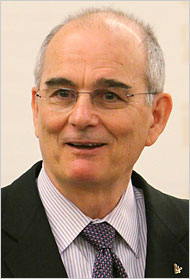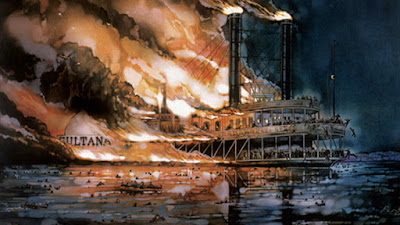For all the writers out there--published, aspiring and everything in between--here's a great article from iUniverse that I thought would be worth sharing!
Writing success boils down to hard work, imagination and passion—and then some more hard work. iUniverse Publishing fires up your creative spirit with 20 writing tips from 12 bestselling fiction authors.
Use these tips as an inspirational guide—or better yet, print a copy to put on your desk, home office, refrigerator door, or somewhere else noticeable so you can be constantly reminded not to let your story ideas wither away by putting off your writing.
Tip1: "My first rule was given to me by TH White, author of The Sword in the Stone and other Arthurian fantasies and was: Read. Read everything you can lay hands on. I always advise people who want to write a fantasy or science fiction or romance to stop reading everything in those genres and start reading everything else from Bunyan to Byatt." — Michael Moorcock
Tip 2: "Protect the time and space in which you write. Keep everybody away from it, even the people who are most important to you." — Zadie Smith
Tip 3: "Introduce your main characters and themes in the first third of your novel. If you are writing a plot-driven genre novel make sure all your major themes/plot elements are introduced in the first third, which you can call the introduction. Develop your themes and characters in your second third, the development. Resolve your themes, mysteries and so on in the final third, the resolution." — Michael Moorcock
Tip 4: "In the planning stage of a book, don't plan the ending. It has to be earned by all that will go before it." — Rose Tremain
Tip 5: "Always carry a note-book. And I mean always. The short-term memory only retains information for three minutes; unless it is committed to paper you can lose an idea for ever." — Will Self
Tip 6: "It's doubtful that anyone with an internet connection at his workplace is writing good fiction." — Jonathan Franzen
"Work on a computer that is disconnected from the internet." — Zadie Smith
Tip 7: "Interesting verbs are seldom very interesting." — Jonathan Franzen
Tip 8: "Read it aloud to yourself because that's the only way to be sure the rhythms of the sentences are OK (prose rhythms are too complex and subtle to be thought out—they can be got right only by ear)." — Diana Athill
Tip 9: "Don’t tell me the moon is shining; show me the glint of light on broken glass." – Anton Chekhov
Tip 10: "Listen to the criticisms and preferences of your trusted 'first readers.'" — Rose Tremain
Tip 11: "Fiction that isn't an author's personal adventure into the frightening or the unknown isn't worth writing for anything but money." — Jonathan Franzen
Tip 12: "Don't panic. Midway through writing a novel, I have regularly experienced moments of bowel-curdling terror, as I contemplate the drivel on the screen before me and see beyond it, in quick succession, the derisive reviews, the friends' embarrassment, the failing career, the dwindling income, the repossessed house, the divorce . . . Working doggedly on through crises like these, however, has always got me there in the end. Leaving the desk for a while can help. Talking the problem through can help me recall what I was trying to achieve before I got stuck. Going for a long walk almost always gets me thinking about my manuscript in a slightly new way. And if all else fails, there's prayer. St Francis de Sales, the patron saint of writers, has often helped me out in a crisis. If you want to spread your net more widely, you could try appealing to Calliope, the muse of epic poetry, too." — Sarah Waters
Tip 13: "The writing life is essentially one of solitary confinement – if you can't deal with this you needn't apply." — Will Self
Tip 14: "Be your own editor/critic. Sympathetic but merciless!" — Joyce Carol Oates
Tip 15: "The reader is a friend, not an adversary, not a spectator." — Jonathan Franzen
Tip 16: "Keep your exclamation points under control. You are allowed no more than two or three per 100,000 words of prose. If you have the knack of playing with exclaimers the way Tom Wolfe does, you can throw them in by the handful." —Elmore Leonard
Tip 17: "Remember: when people tell you something's wrong or doesn't work for them, they are almost always right. When they tell you exactly what they think is wrong and how to fix it, they are almost always wrong." — Neil Gaiman
Tip 18: "You know that sickening feeling of inadequacy and over-exposure you feel when you look upon your own empurpled prose? Relax into the awareness that this ghastly sensation will never, ever leave you, no matter how successful and publicly lauded you become. It is intrinsic to the real business of writing and should be cherished." — Will Self
Tip 19: "The main rule of writing is that if you do it with enough assurance and confidence, you're allowed to do whatever you like. (That may be a rule for life as well as for writing. But it's definitely true for writing.) So write your story as it needs to be written. Write it honestly, and tell it as best you can. I'm not sure that there are any other rules. Not ones that matter." — Neil Gaiman
Tip 20: "The nearest I have to a rule is a Post-it on the wall in front of my desk saying ‘Faire et se taire’ (Flaubert), which I translate for myself as ‘Shut up and get on with it.’" — Helen Simpson
Even famous authors sometimes have a tough time with writing; they also go through periods of self-doubt. Despite this, they always manage to come up with the goods. So take a lesson from them and stop putting off your writing plans and get started on your publishing journey today.
There has never been a better time than now to realize your dream of becoming a published author. Let your voice be heard and let your story be told. Never let your passion for writing wane.
I think all of these tips are wonderful, but 4, 5 and 9 are my favorites. Which of these do you like best? Thanks for visiting and have a great week!



























